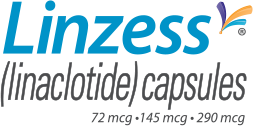Answer a few quick questions about your symptoms.
NAN TRANSCRIPT
PART 1
Nan: Hi, my name is Nan. And I’ve been living with IBS-C for about ten years. And I was diagnosed about three years ago.
On screen: Nan, 54, Diagnosed with Irritable Bowel Syndrome with Constipation (IBS-C) in 2010
Nan: My husband and I live south of Atlanta. And we have two gorgeous daughters, one that just graduated from college and the other that is a rising senior.
Nan: During the week I work as a tutor. It’s a specialized tutor. I tutor a language approach specific for dyslexic individuals.
Nan: On the weekends, my family and I escape to the mountains of north Georgia and it truly is an escape. It is a beautiful serene area that gives us relaxation and peace from the work week. We enjoy hiking. That’s abundant here. We enjoy water skiing. We enjoy kayaking with friends out on the water.
Nan: About 15 years ago my daughter was diagnosed with dyslexia. And so I went to school to try to understand what dyslexia is and how to help her.
Nan: I started becoming constipated and I thought it was just maybe, driving, you know, being a parent, also being a student. And that it would go away if I did the laxative route, but uhm.. I tried laxatives, ginger tea, lemon tea, various things in order to help me... have a complete bowel movement. But I continued to suffer with constipation and the incomplete bowel movement was more regular than not.
Nan: So I went to a gastroenterologist in order to help me with these symptoms, with this constipation.
Nan: … And he suggested that I add more fiber into my diet and he gave suggestions like psyllium fiber, mila seed, flax seed.
Nan: …none of that was working and it was showing in my countenance. And that wasn’t fair to my students. They didn’t deserve that... their confidence is very low. They needed someone that was up and encouraging and positive.
I made an appointment for another physician to another gastroenterologist—to see maybe—maybe it was something more severe.
Nan: I’m very fortunate that all of those tests came back negative and my doctor diagnosed me with irritable bowel syndrome with constipation.
Nan: After I was diagnosed, I was told to still try just the fiber, the diet, you know, eliminating excess sugars from my diet and see if that would help with the constipation and it-- they didn’t. And I would s- still continue to be in major pain. It seemed to be like an afternoon event while I was in the kitchen. My girls would come in from school and they’d say ‘I know you don’t feel well, it’s got to be your stomach again’. And it got- it got to be where, you know, it was- it was the topic of the day, how is mom’s stomach? And, you know, probably 4 out of 7 days it- it was not a good day.
Nan: Looking back I realize that I wasted a lot of time, that I probably could have felt better sooner if I had uhm.. gone on for that second and third opinion trying to find answers to what was causing my irritable bowel, my- my constipation. Instead of—okay, trying well let’s try one more diet, let’s try one more fiber supplement.
Nan: Don’t waste any more time. If you are in pain seek out answers.
PART 2
On screen: Hear about Nan’s experience with LINZESS® after this important information.
Text on-screen with voiceover:
Narrator: LINZESS® (linaclotide) is a prescription medication used to treat irritable bowel syndrome with constipation (IBS-C) and chronic idiopathic constipation (CIC) in adults and functional constipation (FC) in children and adolescents 6 to 17 years of age. “Idiopathic” means the cause of the constipation is unknown. It is not known if LINZESS is safe and effective in children with functional constipation less than 6 years of age or in children with IBS-C less than 18 years of age.
IMPORTANT RISK INFORMATION
- Do not give LINZESS to children who are less than 2 years of age. It may harm them. LINZESS can cause severe diarrhea and your child could get severe dehydration (loss of a large amount of body water and salt).
- Do not take LINZESS if a doctor has told you that you have a bowel blockage (intestinal obstruction).
Please see Important Risk Information at the end of this video.
On screen: Nan, 54, Diagnosed with Irritable Bowel Syndrome with Constipation (IBS-C) in 2010
Nan: My gastroenterologist after doing a battery of tests said, “Nan, let’s- let’s try LINZESS. And this may -- this may help you.
On screen: Individual results and experiences may vary.
Nan: After about a week of being on LINZESS my bowel movements became more regular and thankfully they were complete bowel movements. And then my pain started to subside.
Nan: Occasionally, I would have diarrhea.
Nan: I know this is my experience and it’s very important for each person to talk to his or her own doctor about what treatment is best for them.
Nan: My doctor told me that there could be other side effects with LINZESS including gas, stomach area pain, swelling or a feeling of fullness and pressure in my abdomen.
Nan: If you’re experiencing symptoms of IBS-C don’t waste time like I did. Seek out answers. It took me three physicians to find the solution for myself. Don’t waste any more time. Feel good.
Text on-screen with voiceover:
IMPORTANT RISK INFORMATION
- Do not give LINZESS to children who are less than 2 years of age. It may harm them.LINZESS can cause severe diarrhea and your child could get severe dehydration (loss of a large amount of body water and salt).
- Do not take LINZESS if a doctor has told you that you have a bowel blockage (intestinal obstruction).
Before you take LINZESS, tell your doctor about your medical conditions, including if you are:
- If you are pregnant or plan to become pregnant. It is not known if LINZESS will harm your unborn baby.
- Breastfeeding or plan to breastfeed. You and your doctor should decide if you will take LINZESS and breastfeed.
Tell your doctor about all the medicines you take, including prescription and over-the-counter medicines, vitamins, and herbal supplements.
Side Effects
LINZESS can cause serious side effects, including diarrhea, which is the most common side effect and can sometimes be severe. Diarrhea often begins within the first 2 weeks of LINZESS treatment. Stop taking LINZESS and call your doctor right away if you get severe diarrhea during treatment with LINZESS.
Other common side effects of LINZESS in people with IBS-C and CIC include gas, stomach-area (abdomen) pain, and swelling, or a feeling of fullness or pressure in your abdomen (distention).
Call your doctor or go to the nearest hospital emergency room right away if you develop unusual or severe stomach-area (abdomen) pain, especially if you also have bright red, bloody stools or black stools that look like tar.
These are not all the possible side effects of LINZESS. For more information, ask your doctor or pharmacist.
You are encouraged to report negative side effects of prescription drugs to the FDA. Visit www.FDA.gov/medwatch or call 1-800-FDA-1088.
Please see full Prescribing Information including Boxed Warning and Medication Guide at www.LINZESS.com.
Ask your doctor about LINZESS. For more information, call 1-800-LINZESS.
On screen:
LINZESS Logo
AbbVie and Ironwood Logos



